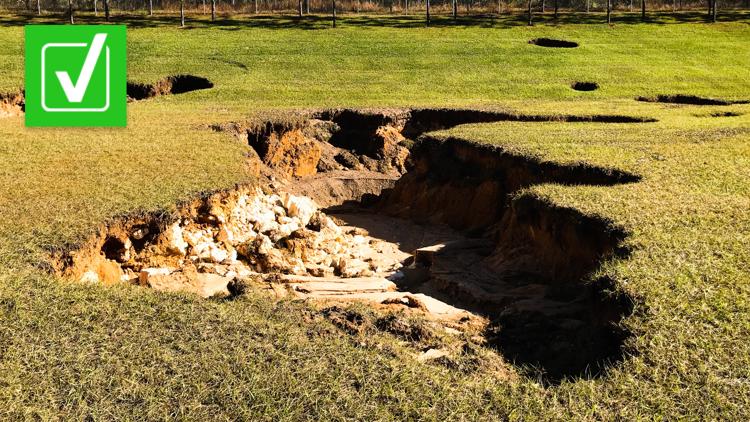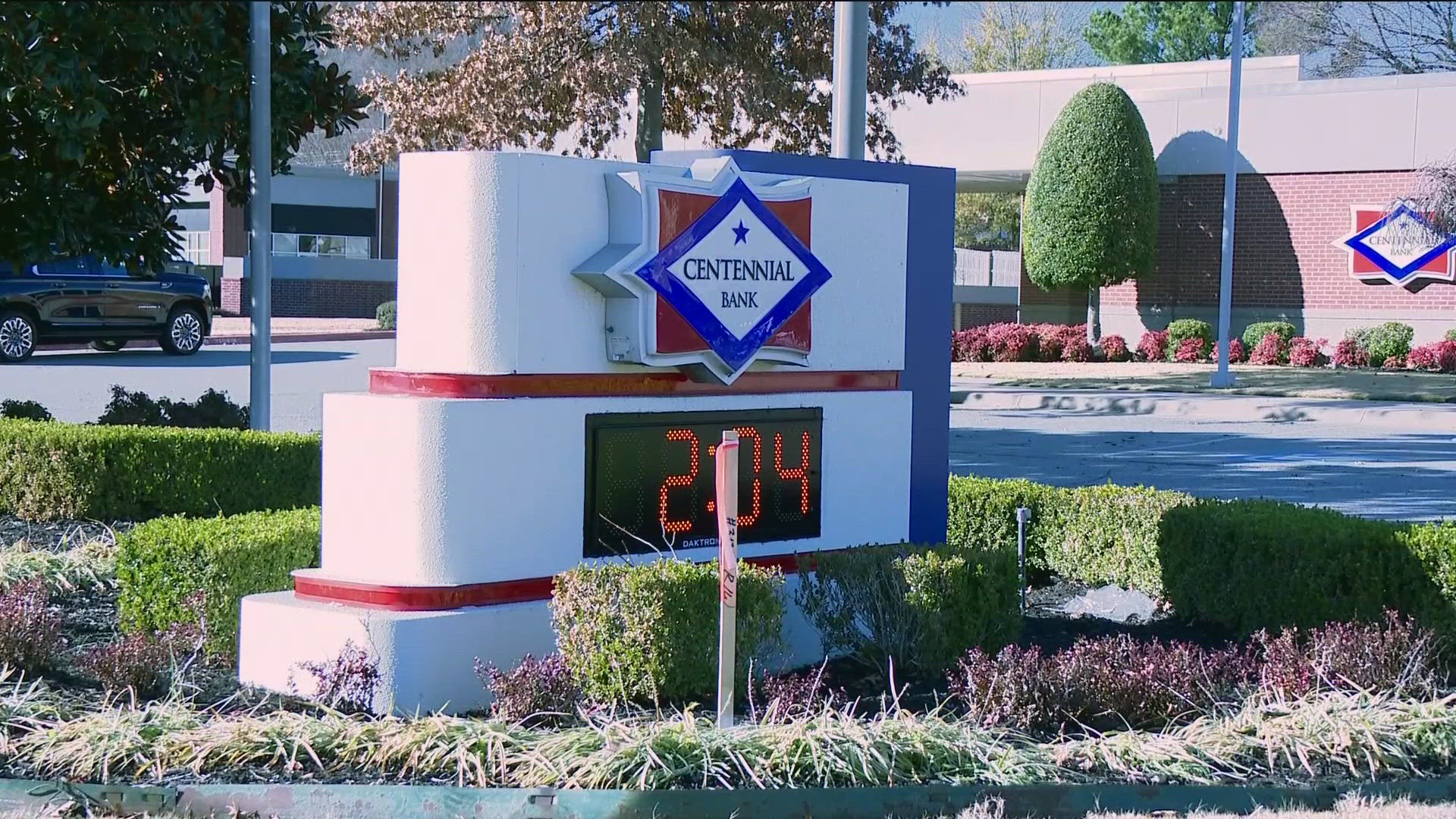In early December, a 64-year-old woman was found dead in Pennsylvania after falling into a sinkhole. The sinkhole initially “began as a manhole-sized gap and may have only recently opened above where coal was mined until about 70 years ago,” the Associated Press reported.
After that incident, people online were searching for potential warning signs of a sinkhole, Google Trends data show.
THE QUESTION
Can sinkholes have warning signs?
THE SOURCES
THE ANSWER
Yes, sinkholes can have warning signs.
WHAT WE FOUND
A sinkhole is a hole or depression in the ground that forms when a surface can no longer be supported by the land underneath it, the United States Geological Survey explains. Sinkholes can have warning signs, which include cracked or uneven foundations in a home, circular areas of wilted vegetation, and rainwater collecting in areas that previously didn’t hold water.
Sinkholes are most common in karst terrains, where the rocks beneath the surface are limestone, carbonate rock, salt beds or another type of rock that is easily dissolved by running groundwater. They tend to cause the most damage in Florida, Texas, Alabama, Missouri, Kentucky, Tennessee and Pennsylvania, where easily dissolvable rock types are prominent, according to the American Geosciences Institute.
While sinkholes often cause sudden land collapses, they typically form over a long period of time so there can be warning signs to look out for. According to the Pennsylvania Department of Environmental Protection, Helicon and Concrete Solutions of Atlanta, signs of a sinkhole formation can include:
Cracking in a home’s foundation or driveway
Leaning or cracking in a home’s walls
Uneven floors, cabinets or drawers
Doors and windows no longer closing properly
A sinking front porch
Trees or fences tilting or starting to become more visible
Ponds of rainfall collecting in areas where water hasn’t collected before
Small, circular areas of vegetation beginning to wilt
A hole appearing after a heavy rain event
A hole is near an active quarry
Surface water or stormwater is disappearing into the hole
The Pennsylvania Department of Environmental Protection also provides tips for how to determine whether a hole in your area is a natural sinkhole caused by dissolved rock or a hole caused by human activity.
“If you are on shale, ‘slate’ or ‘trap’ rock or live outside the areas of the karst features (such as the coal regions), you likely do not have a karst-related sinkhole. Instead, you may have a mine subsidence, ground settlement, a leaky pipe, buried organic material (vegetation, tree roots or trash) that has decayed, or a collapsed septic system,” the Department explains.
Karst landscapes are typically characterized by streams, caves or springs, according to the National Park Service.
The U.S. Geological Survey also provides a map on its website highlighting areas in the United States where rock types that are likely to dissolve easily are commonly found.
If you suspect a small hole is a sinkhole forming, the Florida Department of Environmental Protection recommends contacting property owner’s insurance, as small sinkholes can be fixed by being filled with soil or sand.
If you believe the sinkhole isn’t caused by a natural issue, and instead may be a case of leaky pipes or another utility issue, the U.S. Geological Survey says to contact a utility company to resolve the issue.
But if the hole is directly impacting the house or there’s an immediate danger to life and property, people should evacuate the space and call 911.



